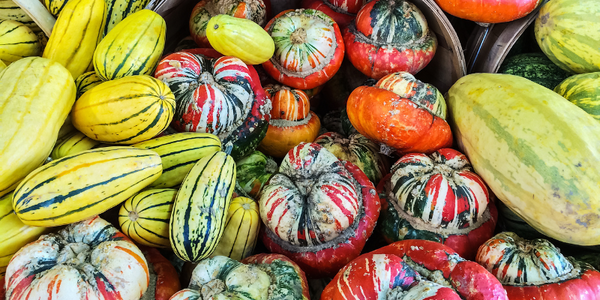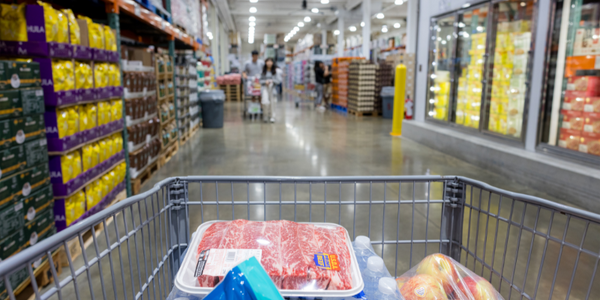Posted on January 11 2024

Too often there are long lines at the grocery store when there is news of an impending blizzard or hurricane. Many people wait to the last minute to stock up on supplies in the event of power outages and the likelihood stores will be closed. Weather events are only one reason for people to be prepared with stored food, batteries, and first aid supplies. The Covid-19 pandemic resulted in shortages of numerous food, cleaning, and over the counter medical supplies. While it's easy to store non-food items for long periods of time, most groceries come with an expiration date. Continue reading to discover the foods that will store safely for the longest time. Having a supply of food on hand when an unexpected event occurs keeps you from dealing with long lines at the grocery store, as well as shortages of certain foods and household items. The following foods are excellent for storage and provide for versatility during meal preparation.
Rice
For long term storage, which rice should you choose? Surprisingly, both white and brown rice can be stored for 10 years or longer. Of the two rices, brown is the king of nutrition, while white depends on the addition of vegetables and meat to supply vitamins and minerals. Some people fear brown rice will turn rancid, and it's true that the oils on its surface do. However, a quick rinse in warm water will remove those oils, and your brown rice will be fresh tasting and delicious. Although white rice lacks nutrients, it cooks quickly and can be used in soups and casseroles as an extender. Use brown rice when it is the main portion of the meal.
Dried Beans, Peas, and Lentils (Legumes)
All types of legumes have a long shelf life, and last indefinitely when properly stored in a cool, dry location. Store your legumes in 5 gallon buckets with tight fitting lids. Some suppliers sell beans for storage in sealed containers for your convenience. The wonderful thing about legumes is their ability to form a perfect protein when combined with rice. During an emergency, meat is not always available. You can be sure your family is receiving the protein they need with a casserole of lentils and rice or a delicious chili beans and rice dish. Add several rice and legume meals to your recipe file.
Peanut Butter
For long term storage, avoid the healthier natural peanut butter and opt for the one with the preservatives and longest shelf life. Buy medium size jars of peanut butter for storing, and keep them in a cool dry place. Once a jar is opened, it should be used in a reasonable amount of time. Powdered peanut butter can also be purchased, and can be stored from five to ten years. Simply add pure water to re-hydrate the powdered peanut butter. A high protein food, peanut butter can be used in many ways, including in main courses and desserts.
Pasta
Everyone loves pasta, and it can be made into a large number of delicious meals. From lasagna to stuffed shells to cold pasta salad, your family will enjoy dozens of different pasta dishes that are both healthy and delicious. Pasta usually lasts 1 to 2 years past the best used by date. Pasta contains carbohydrates, which provide the body with glucose. Your brain and muscles need glucose for fuel. Pasta is naturally low in sodium and fat and provides healthy meals for people on restricted diets.
Dehydrated Fruits and Vegetables
Dehydrated vegetables make soups taste great. The drying process does not deplete the vitamins and minerals in vegetables. Some popular choices for drying include carrots, asparagus, celery, onions, greens, potatoes, squash, green beans, and tomatoes (technically a fruit). Dehydrated fruits make delicious desserts, pies, smoothies, and sauces. Toss a few dried strawberries in your children's cereal for a delightful breakfast. Any fruit your family enjoys can be dehydrated and enjoyed three or four years later.
Other Foods for Storage
Not all foods are created equal when it comes to storage. Always check the package labeling for expiration and use by dates. You can find storage information online at the manufacturer's website for foods you are uncertain about. The following foods are popular for storing:
- Beef and turkey jerk (commercial brands)
- Powdered milk
- Spices, salt, pepper
- Honey
- Instant coffee
- Tea
- Cocoa powder
- Freeze-dried foods
- Bouillon cubes
- Sugar
- Powdered eggs
- Canned goods
- Pure maple syrup
- Oats
In times of crisis, ensuring the longevity of your stored provisions becomes paramount. Vacuum sealing emerges as a highly effective technique to safeguard the quality of various foods over an extended period. Meats, including the jerky varieties mentioned earlier, benefit greatly from vacuum sealing, as it minimizes exposure to air and preserves freshness. Likewise, cheeses, both hard and soft, can be vacuum-sealed to stave off spoilage. The versatility of this method extends to fresh produce, from vegetables to fruits, maintaining their natural flavors and nutrients. Leftovers, too, can find a new lease on life when vacuum-sealed before refrigeration or freezing. This technique is not limited to perishables; it's equally effective for extending the shelf life of bread, grains, coffee, tea, and even spices. Incorporating vacuum sealing into your food storage strategy adds an extra layer of protection against deterioration, ensuring that your emergency supplies remain both plentiful and palatable when you need them most. Remember to use FoodVacBags vacuum sealing bags and rolls, and label each package with the date to track freshness accurately.
The information in this article will help you get started on a food storage program to feed your family during a crisis of any kind, be it weather-related, salary disruption, pandemic, or national disaster. Get started on your storage immediately, and add a little more to your stockpile each time you go shopping.





0 comments